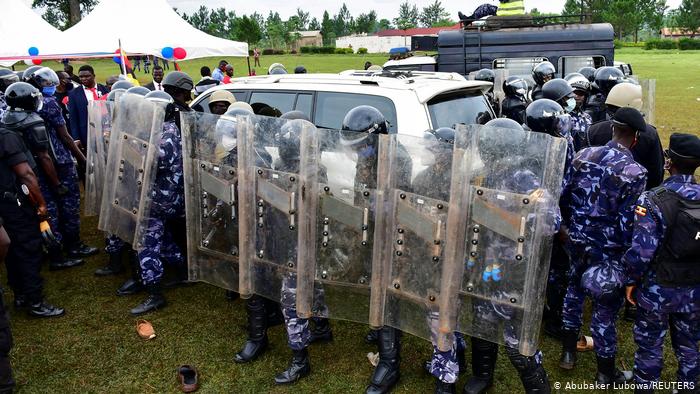Uganda's President Yoweri Museveni has confirmed a social media blackout during the election period amid calls to uphold human rights. The government has sent a massive military presence to "maintain order."
As Ugandans prepare to cast their ballots in what observers consider one of the most competitive elections in Uganda's political history, President Yoweri Museveni confirmed that social media has been switched off ahead of the polls on Thursday, January 14.
"The government has closed social media. This is unfortunate but it's unavoidable," Museveni said in a national address on Tuesday.
In response to the conduct by @Twitter and @Facebook' s decision to suspend and block government leaning user accounts, the President of Uganda @KagutaMuseveni said that there is no way anybody should come and decide for our country. @OfwonoOpondo pic.twitter.com/MFPqqj7Rba
— Government of Uganda (@GovUganda) January 12, 2021
While working on this article, the author was unable to communicate with DW correspondents or rights activists in Uganda via WhatsApp. There were also considerable difficulties calling people in Uganda directly over standard mobile phone networks.
Netblocks, an organization that tracks internet connectivity, reported that most social media networks were down as of Tuesday, including Twitter, Facebook, WhatsApp, Instagram and Viber.
Confirmed: Social media and messaging restricted in #Uganda as authorities impose internet gag order for elections; data show Twitter, Facebook, WhatsApp, Instagram, Snapchat, Skype, Viber and some Google and Telegram servers impacted #UgandaDecides2021
— NetBlocks.org (@netblocks) January 12, 2021
📰https://t.co/0qQtBcr4Fc pic.twitter.com/zQTGFBKvnw
"The internet is very slow. The network is not good at all," Madina, a resident of Uganda's capital, Kampala, told DW. "We can't download anything from Facebook. We can't download anything. So we are in that situation."
She said the social media blackout would have a big impact because "for us, we use our phones to see what is going on in Uganda or other countries. ... They [the authorities] don't want us to know or get what will take place on January 14. That is what they are avoiding maybe."
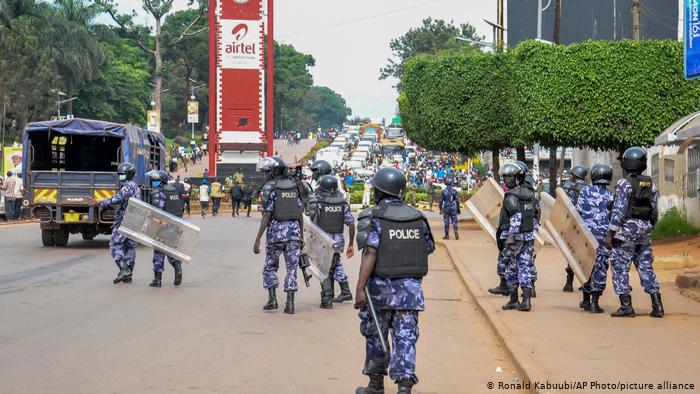
Heavy army presence in the capital
The social media shutdown is adding to what is already a tense election atmosphere in urban centers where Museveni has deployed the military, fearing riots that could overwhelm the regime.
The military presence is particularly heavy in Kampala, where scores of armored vehicles with mounted guns are patrolling the capital.
"It doesn't feel as though the country is going into an election," said Nicholas Opiyo, a renowned Ugandan human rights lawyer. "It feels as though the country is at war."
He described the mood in Kampala as apprehensive, telling DW that many people he knew had sent their families out of the country or to the countryside because they were scared.
Internet access a basic human right
The social media shutdown will make it more difficult though for independent monitors and journalists to report on violence and any other issues that may hinder the elections.
In a letter addressed to the Ugandan government, the Committee to Protect Journalists on Tuesday joined 54 other organizations calling on President Museveni to keep the internet connected during and after Thursday's polls.
The letter stresses that any disruption to the internet will impede journalists from effectively reporting and also infringe on citizens' rights to gain essential information at a critical moment.
The letter also expressed concern over a request from Museveni's government to Google that asked the tech giant to shut down opposition figures' YouTube channels.
Opposition presidential candidate for the National Unity Platform, Robert Kyagulanyi, popularly known as Bobi Wine, warned on Twitter that the government had denied many international journalists accreditation to cover the election.
Lost count of how many international journalists have told us they've been denied visas of accreditation to come to Uganda and cover the election! This is in addition to government deliberately refusing to invite observers perceived to be very objective! #WeAreRemovingADictator
— BOBI WINE (@HEBobiwine) January 11, 2021
Controversial social media tax
President Yoweri Museveni in 2018 complained that young people spend too much time on WhatsApp and other online applications — and were responsible for spreading false information.
Later that same year, Uganda's government introduced the "over-the-top" tax — commonly known as the social media tax — for online services such as WhatsApp, Facebook, and Twitter.
Since then, social media users in Uganda have to pay an additional USh200 ($0.05, €0.04) to access social media platforms.
This led to technically savvy Ugandans taking to Virtual Private Networks, or VPNs, to evade payment.
For many young Ugandans critical of the government, boycotting the tax has become a way to rebel against the ruling NRM party.
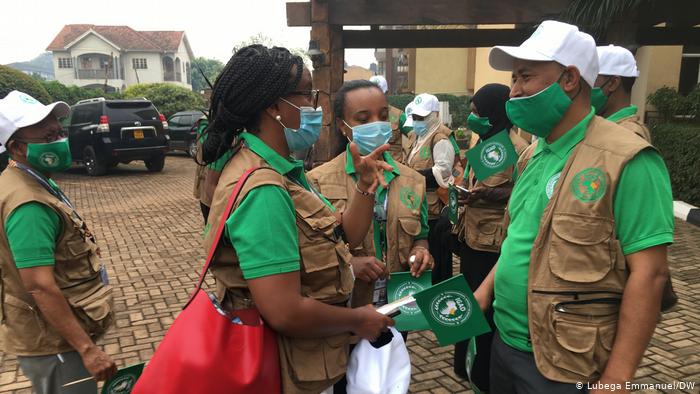
The added advantage is that those who are already using VPNs are able to easily get around this latest social media blackout.
"Since [Monday], we have been having a problem with the internet, especially those people who are using [the social media tax]. They have found it so challenging but with people who had already downloaded VPN, they are okay," Gerald Sengelo, a Kampala resident, told DW.
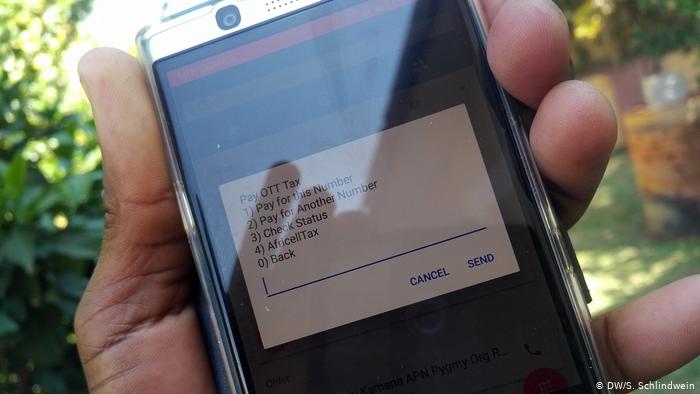
The 'Facebook controversy'
On Monday, Facebook took down several accounts linked to President Museveni's administration.The social media giant alleged that some of the profiles were fake and manipulated public opinion to favor the government while attacking the opposition.
The government rejected the accusations and blamed Facebook for "meddling in the country's election."
It has since demanded that those deleted accounts be reinstated.
"Uganda is ours. It's not anybody's. There is no way anybody can come and play around with our country to decide who is good, who is bad," President Museveni said in response to Facebook's takedown orders.
WATCH: We demand that @Facebook & @Twitter write directly to the individuals that lost their accounts. Since @Facebook cited @MoICT_Ug in their statement, let them write to us so that there’s a chance for a fair hearing.
— Uganda Media Centre (@UgandaMediaCent) January 12, 2021
Accounts lost on Facebook belong to @GovUganda employees. pic.twitter.com/gGSDYkfgWI
Rights activist Nicholas Opiyo said he was not surprised by the tech giant's move.
"We saw it a long time coming because the Ministry of Information had created a group of people to abuse others online," Opiyo said. "They [Ugandan government] created a system that would manipulate public conscience and public debate. And gladly, Facebook was able to identify and block these accounts."
According to the award-winning lawyer, Facebook should have blocked those accounts a long time ago because they distorted the quality of the political debate.
"They create an artificial debate online to try and paint a picture that is not the truth. So I'm really happy that Facebook took that step," Opiyo added.
Paying the ultimate price
Opiyo spent time in jail after facing charges of money laundering and is now out on bail.
He described the allegations as a continuation of a pattern targeting civil society leaders. "It left me more emboldened to continue doing what we were doing," Opiyo said.
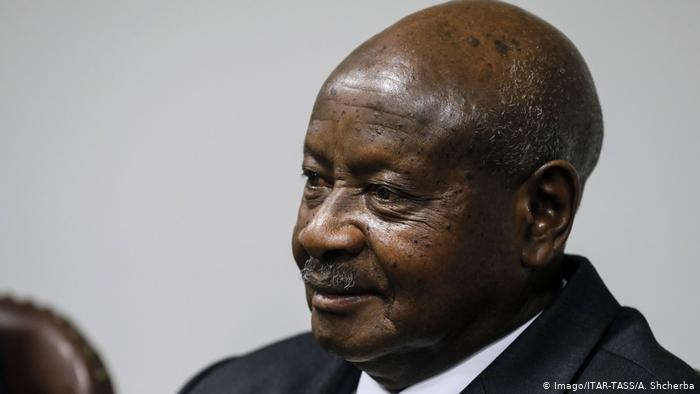
"It might be difficult to do it, but we'll try as much as we can, using all means and resources to continue doing what we do to defend human rights because our work is most needed in times such as this."
The Ugandan government has cracked down on opposition politicians and activists, as well as journalists. It accuses the opposition of flouting covid-19 prevention rules.
"When the authorities seek to abuse rights. When they seek to silence people, then we should seek them more. So we will continue doing what we do. And I'm happy to pay the ultimate price."
Latest Stories
-
Shamima Muslim urges youth to lead Ghana’s renewal at 18Plus4NDC anniversary
35 minutes -
Akufo-Addo condemns post-election violence, blames NDC
43 minutes -
DAMC, Free Food Company, to distribute 10,000 packs of food to street kids
2 hours -
Kwame Boafo Akuffo: Court ruling on re-collation flawed
2 hours -
Samuel Yaw Adusei: The strategist behind NDC’s electoral security in Ashanti region
2 hours -
I’m confident posterity will judge my performance well – Akufo-Addo
3 hours -
Syria’s minorities seek security as country charts new future
3 hours -
Prof. Nana Aba Appiah Amfo re-appointed as Vice-Chancellor of the University of Ghana
3 hours -
German police probe market attack security and warnings
3 hours -
Grief and anger in Magdeburg after Christmas market attack
3 hours -
Baltasar Coin becomes first Ghanaian meme coin to hit DEX Screener at $100K market cap
4 hours -
EC blames re-collation of disputed results on widespread lawlessness by party supporters
4 hours -
Top 20 Ghanaian songs released in 2024
5 hours -
Beating Messi’s Inter Miami to MLS Cup feels amazing – Joseph Paintsil
5 hours -
NDC administration will reverse all ‘last-minute’ gov’t employee promotions – Asiedu Nketiah
5 hours

